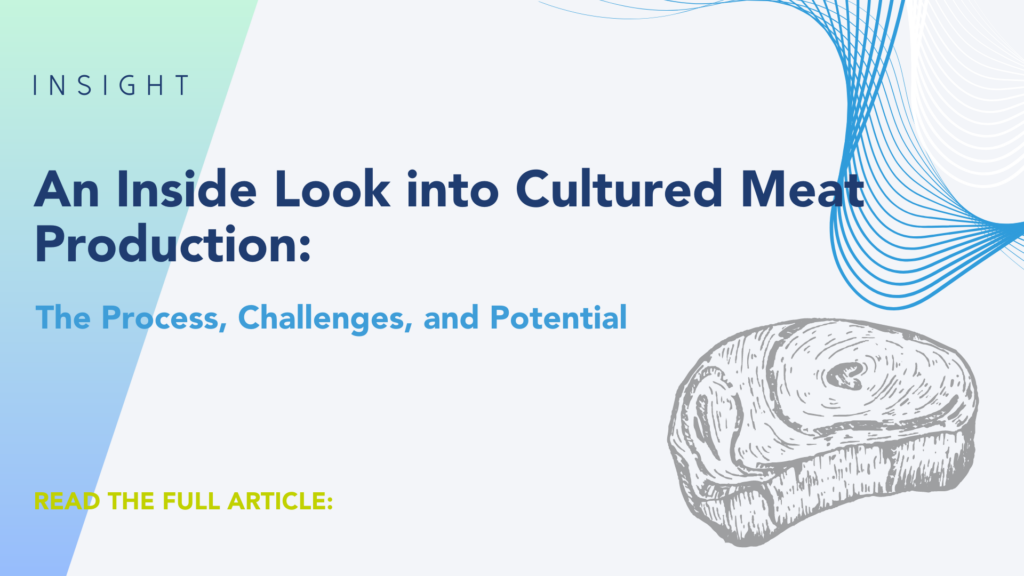Affordable Meat for the Masses
The global livestock industry’s ecological impact is more than just daunting. Responsible for over a third of all global greenhouse gas emissions caused by human activity, our meat production, processing, and packaging exceeds the emissions from all our cars, trains, ships, and planes combined. The call for responsible alternatives is loud, and cellular agriculture leads the charge, providing solutions in three main forms: microbial fermentation, plant fibres, and cultured meat.
How cultured meat is made
A groundbreaking 2011 study by the University of Oxford revealed that cultured meat could produce the same amount of meat on just 1% of the land used for ‘factory farming,’ with 78-96% lower greenhouse gas emissions and 90% less water usage. The overall carbon footprint for a cultured beef industry is promising – 92% lower than beef, 52% lower than pork, and 17% lower than chicken.
Cultured meat has the potential to alleviate animal cruelty, prevalent in some markets with low-quality farming practices. Cultured meat involves the use of collagen seeded with muscle cells and bathed in a nutritious solution to induce division and growth, a vision first conceived in the 1950’s.
Innovative startups like Israeli-based ‘ProFuse’ are working on novel supplements for cell growth, as the industry strives towards a more feasible process. However, the balance between sustainability and affordability remains a crucial factor.
Technology Solutions
At BPES, we actively support the lab and production scale cultured meat industry by creating affordable and accessible solutions. Technologies include high throughput imagers, bioreactors, continuous centrifuges, and online Biomass Sensors that are scalable through full-scale manufacturing. Furthermore, partnering with MTI BioScience for Continuous Thermal Sterilisers (CTS) ensures stable continuous processing and the highest quality media production.
Addressing Consumer Concerns
Taste and perception remain consumer concerns. Recent ‘blind taste tests’ in Tel Aviv have demonstrated cultured meat’s similarity to conventional meat, challenging the notion that “it just doesn’t taste the same”. Unlike plant-based meats, cell-grown meat has the advantage of being real meat, further elevating its potential.
A Sustainable Future Together
Cultured meat’s impact on the farming industry may lead to a reduction in livestock sizes, fostering a kinder approach to maintaining select herds. The future may see livestock farmers and cultured meat labs working together, nurturing an unlikely yet promising partnership.
The global cultured meat market was valued at USD 163.6 million in 2021 and is expected to expand at an 11.4% CAGR between 2022 and 2028. The demand for sustainable, healthier, and alternative products drives this growth, positioning the cultured meat industry for success.
The cultured meat industry, projected to reach USD 2.78 Billion By 2031[10], promises an innovative revolution with a massive ongoing impact on the environment, health, and animal welfare. This union between cultured meat production and traditional farming could be the next big step towards a responsible and sustainable human future, reshaping our food system while preserving the essence of tradition. Together, these once-distant worlds may form an unexpected yet invaluable partnership for the welfare of our planet.




0 Comments